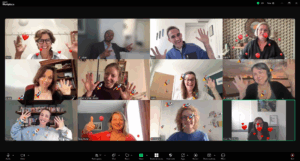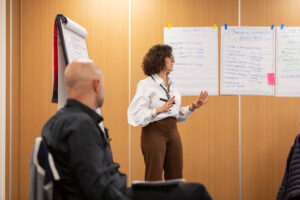Blaming in the Workplace: An Antidote to the Blame Game
When it gets in the way of work, who hasn’t turned to blaming in the workplace? Here’s an example of blaming technology…
When you’re feeling frustrated and stressed by a technical issue that is stopping you from delivering work to meet a deadline it’s all too easy to put the blame squarely on the IT department’s inadequate technology.
Inevitably, colleagues take expressed upset personally – and will become defensive. Just as inevitably, the conversation can get heated and both parties end up feeling more frustrated and stressed.
The problem only grows in size and impact.
Blame (verb): to feel or declare that someone, or something, is responsible for a fault or wrong.
Blaming in the workplace is so common. When we’re stressed out and anxious, when we just need an issue resolved quickly, it’s much more likely we’ll fall into finger-pointing tactics. It’s just one unconscious way that we try to avoid taking responsibility for tackling difficult challenges.
It doesn’t necessarily mean we are bad people either. Plus blaming something – be it dodgy technology or a bad product – at least isn’t as personal as blaming someone for our problems.
But, whatever the circumstances, resorting to blaming in the workplace never ends well for anyone. Blame damages our relationships. It closes down our options. Ultimately blame blocks learning and growth.
Cultivating curiosity
Organisation and Relationship Systems Coaching (ORSC) teaches us some great antidotes to blaming in the workplace. One really useful tool is curiosity.
What we pause on a heated conference call, step out of our own agenda, and for a moment really listen to what our colleagues are saying?
What if we cultivated curiosity about the real causes?
And from that place adjust our thinking, to ask ourselves: How might I have contributed to this problem? What could I learn from this situation? How might we, together, solve this issue?
It is that momentary pause, and taking a conscious position of curiosity, that can take everyone in a different, much more productive direction.
If we can be more mindful of the tools and skills taught in ORSC training, we will be equipped to resolve things in a matter of minutes, instead of the issue taking up a week of our time and generating far too many emails!
Could you resort less to blaming in the workplace?
If you’d like to acquire the skills and tools to be more conscious and intentional at work, join us for the next ORS@work training.






